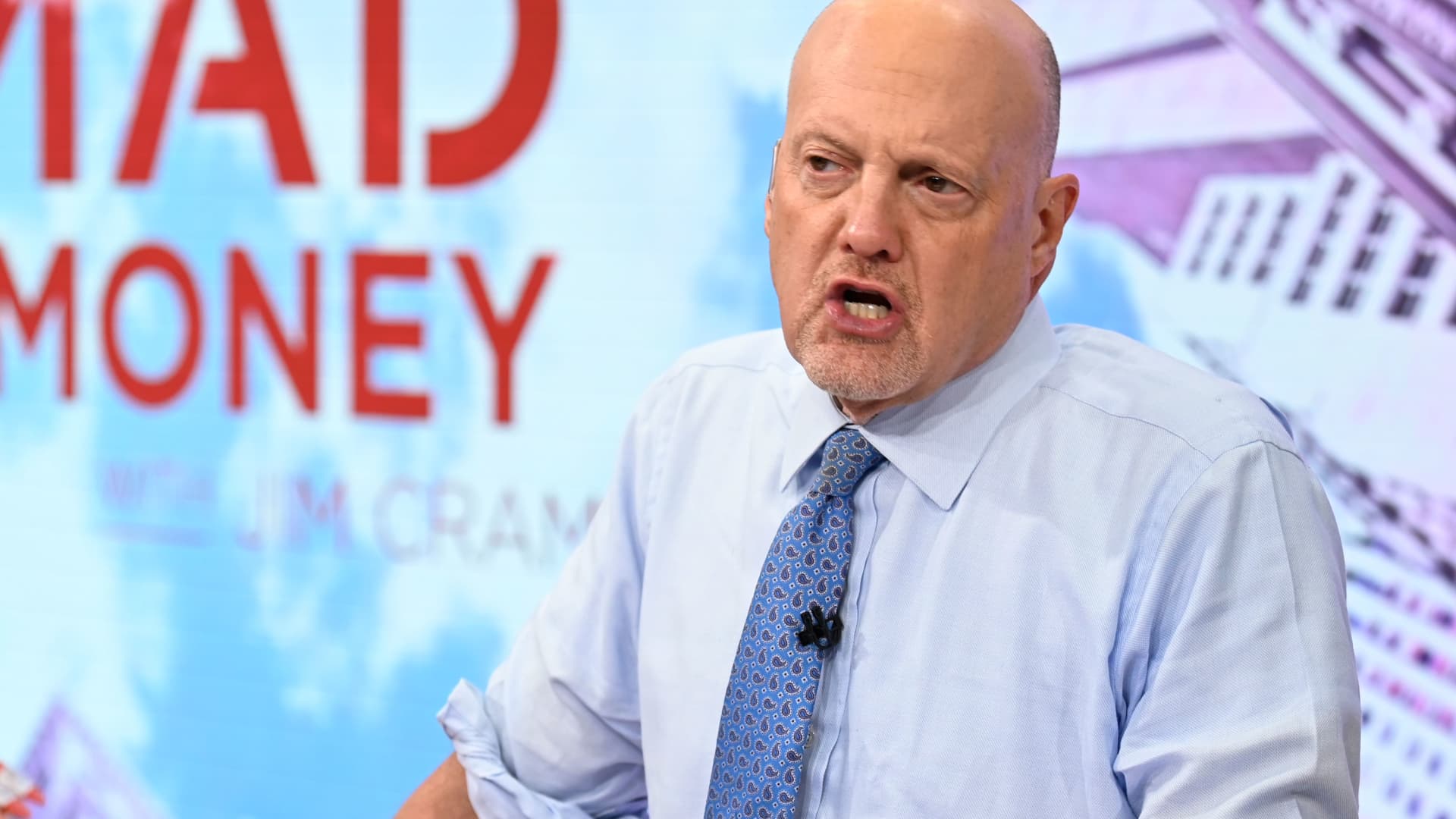If you ask Donna Morris, there's one behavior that's the ultimate red flag an employee won't get far in the workplace: when someone is a "Debbie Downer."
Morris, 57, has been executive vice president and chief people officer at Walmart since 2020, helping shape the employee experience of 2.1 million workers since the onset of the Covid-19 pandemic. Prior to her current role, she spent 17 years at Adobe in a variety of leadership positions — and throughout her career, she's learned a thing or two about red flags in the office.
"Nobody wants [to hire] a Debbie Downer," Morris tells CNBC Make It, adding that this kind of person is "constantly negative. You know they're going to show up [and] they're going to bring the problem, never the solution. I like people who bring the problem and a suggestion for how they might resolve [it.]"
A "Debbie Downer" can also be someone who's a naysayer, sharing negative opinions about others' ideas and goals, or regularly being a hindrance to new projects and perspectives. This could make it difficult for them to make the connections needed to climb the corporate ladder, or for their bosses and managers to trust them with new projects.
If your co-worker has this character trait, they're "only going to support you to a restricted limit," Juliette Han, a Harvard-trained neuroscientist, told CNBC Make It in June 2023. "They need you to stay within a short leash, and might discourage you from meeting new people in the company or going after new projects if it doesn't benefit them directly."
That doesn't mean you should practice toxic optimism, pretending everything is fine when your team is facing difficult circumstances, for example. It's unnatural and unrealistic for someone to be happy all the time, Morris says. Similarly, a continuous negative spiral could be a signal that you're in the wrong job or company, she adds.
How to actually get ahead
There are a couple attributes that separate the most highly successful employees to those who fall short, says Morris.
She thinks highly of workers who "deliver what you are expecting at the time that you're expecting," she says. "You're better to deliver early than to deliver late, and you're better to deliver more than less."
"Another green flag is they're open to opportunities, and they put their hand up to take on more," she adds. "Or they bring a problem with the remedy or request help in a timely manner, as opposed to the house is on fire."
You can show you have this kind of team player, self-starter attitude by offering help even when you're not asked for it, like volunteering to mentor the new intern or pitching an idea that solves a problem your boss has been dealing with.
Demonstrating radical intellectual curiosity, like researching a new AI tool or a new software your competitors are using, then sharing your findings with your boss or manager, also goes a long way, according to Michael Ramlett, CEO of global data intelligence firm Morning Consult.
And if you're willing to help your colleagues along the way, acting as a mentor and sharing the things you've learned, that's the icing on the cake, Morris says.
"People who you see are actually helping others [are a] total green flag."
Want to stand out, grow your network, and get more job opportunities? Sign up for Smarter by CNBC Make It's new online course, How to Build a Standout Personal Brand: Online, In Person, and At Work. Learn from three expert instructors how to showcase your skills, build a stellar reputation, and create a digital presence that AI can't replicate. Sign up today with coupon code EARLYBIRD for an introductory discount of 30% off the regular course price of $67 (plus tax). Offer valid July 22, 2025, through September 2, 2025.
Plus, sign up for CNBC Make It's newsletter to get tips and tricks for success at work, with money and in life, and request to join our exclusive community on LinkedIn to connect with experts and peers.

.png)











 English (US) ·
English (US) ·